Judge Juan Merchan, left, listens as David Pecker testifies on the witness stand in Manhattan criminal court, Friday, April 26, 2024, in New York. (Elizabeth Williams via AP)
Last week, I paid a visit to the Donald Trump hush-money criminal trial that was ongoing at 100 Centre Street. It was still dark when The New York Times reporter Maggie Haberman, who was first in line for the press, directed me to where the public waits.
After two sets of metal detectors, I was the last person from the public to be let in that morning. I had a seat in the last bench in what looked like wooden church pews from a denomination that had fallen on hard times. Along the baseboards of the courtroom there was a stripe of green travertine marble from a time when money was spent on courthouses.
David Pecker, the former owner of American Media Inc. (AMI), which owns the National Enquirer, was the witness for the day. I was struck by how casually Pecker appeared to describe multiple campaign finance crimes. I knew he could confess because he had already been immunized by federal authorities.
I was interested Pecker’s testimony because I’ve worked as a campaign finance lawyer for 19 years and I’ve written three books on the subject, the latest of which, “Corporatocracy,” will come out this fall.
What did David Pecker testify about?
The first thing that caught my attention was something that had nothing to do with Trump. Rather it was Pecker’s discussion of Arnold Schwarzenegger. The prosecutor asked Pecker whether he had any qualms about getting involved in politics around the 2016 election and he said he did based on his experiences in 2003 around Schwarzenegger’s run to be California’s governor.
Pecker’s testimony described how when AMI was going to purchase some fitness magazines, Pecker was told by the owner of the magazines, Joe Weider, that Pecker had to talk to Schwarzenegger first. Schwarzenegger apparently asked Pecker to be an editor-at-large of the fitness magazines and for AMI to stop running negative stories about Schwarzenegger because he was about to run for governor. Pecker said he agreed to this arrangement so that AMI could ink the deal. Shortly afterward, Schwarzenegger announced that he was running for governor on “The Tonight Show with Jay Leno,” and then AMI was inundated with calls from women with stories complaining about Schwarzenegger’s treatment. Pecker said he honored the agreement to not publish negative stories about Schwarzenegger and that he bought stories from women complaining about Schwarzenegger. Pecker had no plans to publish these women’s stories.
The prosecutor asked: “Did you come to appreciate the legalities surrounding such an arrangement with a political candidate?”
Related Coverage:
And then Pecker responded: “Yes. That was the first time I ever came across a political violation a political contribution, what a violation was.” At which point a lawyer for Trump objected to the use of the word “violation.”
What Pecker was describing with respect to AMI’s catch and kill efforts on behalf of candidate Schwarzenegger during the recall of Gov. Gray Davis was a likely a violation of California’s campaign finance laws at the time, which required transparency and compliance with contribution limits under Proposition 34 which set the max at $21,200 per donor per candidate.
Pecker wasn’t clear in his testimony how much he had spent on catching and killing negative stories about Schwarzenegger. But if it was more than $21,200, that’s one way California law could have been violated. And because it was secret, that’s another potential campaign finance violation under California law. The statute of limitations has long since run in California for those would-be crimes.
Then Pecker testified about his role in catch and kill for the Trump 2016 campaign. With respect to Karen McDougal, AMI paid her $150,000 and then never intended to run her story. Back in 2021, AMI settled a complaint at the FEC that this $150,000 payment was an illegal contribution to the Trump campaign in the 2016 election for a $187,500 fine. In the FEC settlement AMI acknowledged that it broke campaign finance laws in 2016. AMI also entered into a non-prosecution agreement with the DOJ in 2018, which is one reason Pecker can be so forthcoming.
The federal crimes Pecker appears to have acknowledged were more serious than the California ones. California law allows corporations to spend in elections. By contrast, there is still a federal law on the books known as the Tillman Act — now 52 U.S. Code § 30118 — which bars corporations from giving contributions directly to a candidate. Thus AMI would not have been able to lawfully give one red cent to the Trump campaign directly.
By giving $150,000 in value in secret to influence the 2016 election, AMI arguably violated the federal law in at least three ways: (1) it was an illegal corporate contribution that violated the Tillman Act; (2) it was an illegal contribution because it was bigger than what an individual person could lawfully give a federal candidate; and (3) it wasn’t properly disclosed as a campaign contribution by either AMI or the Trump campaign.
There’s even a fourth potential crime because the payment was done through shell corporations including Michael Cohen’s Resolution Consultants LLC, such that the transaction violated the federal ban on giving contribution in the name of another (aka an illegal straw donor). Pecker admitted in his testimony that he knew it was unlawful for a corporation to coordinate with federal candidate.
There are a few key goals of campaign finance law. One is to set common ground rules for all candidates in a given race, including how much money can be raised from which sources. Another goal of campaign finance is providing transparency for voters. Voters need to have some semblance of clue who is financially supporting which candidate. The Supreme Court refers to this as “the voter informational interest.” When these two goals are undermined, competition between two candidates is unfairly skewed by the cheater and voters are left in the dark about who is trying to influence their votes.
I realize that Trump is not being charged with a campaign finance crime in this New York case. But he is being charged with falsifying business records to cover up a crime. And what Pecker’s testimony made clear is that there were many campaign finance crimes committed to help Trump win the 2016 election. Forget that it involves infidelity, a Playboy playmate and a porn star. None of that has legal significance. What matters is the campaign finance crimes that kept voters in the 2016 election in the dark about who was paying to manipulate the electorate.
Mid-morning at the trial, The New Yorker’s Eric Lach turned around and asked me: “Is this normal?”
My response to him was “no!”
Ciara Torres-Spelliscy is a professor at Stetson Law, a Brennan Center fellow and the author of the forthcoming book Corporatocracy.
Sign up for the Law&Crime Daily Newsletter for more breaking news and updates
The post Opinion: The many campaign finance violations divulged in Trump’s hush-money criminal trial first appeared on Law & Crime.

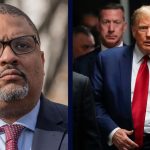


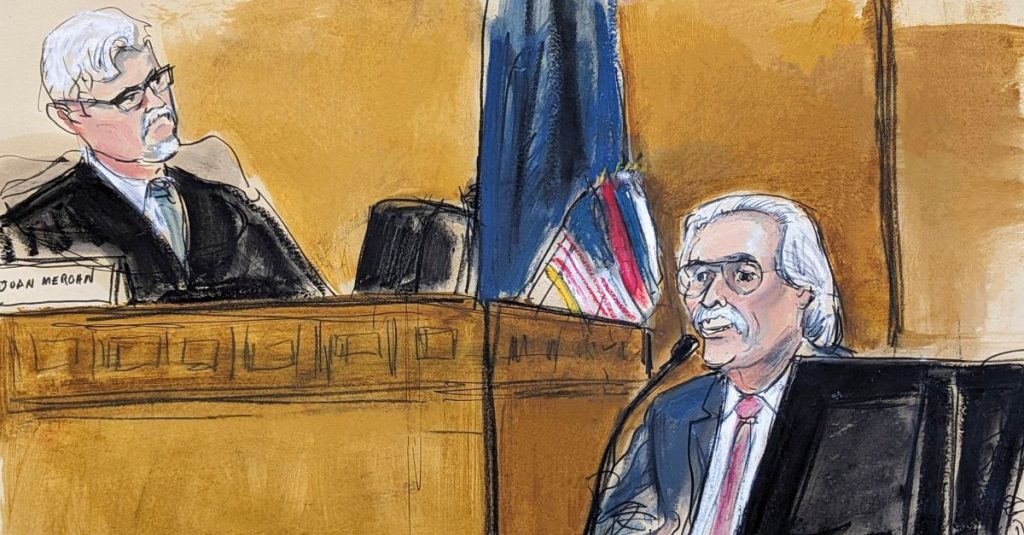



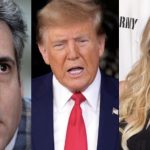
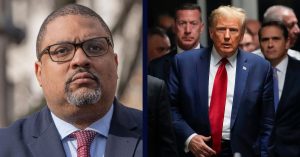

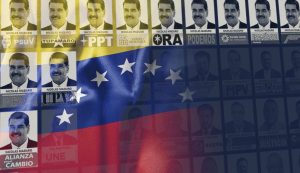
More Stories
‘No bearing on this prosecution’: Manhattan DA fires back as Trump demands judge toss hush-money conviction in wake of Supreme Court presidential immunity decision
DA to Seek Death Penalty for Couple Accused of Torture Murder of 12-Year-Old Girl Who Weighed 50 Pounds When She Died
Suspect Said Diddy Paid $1 Million to Have Tupac Murdered, Prosecutors Claim in Court Docs